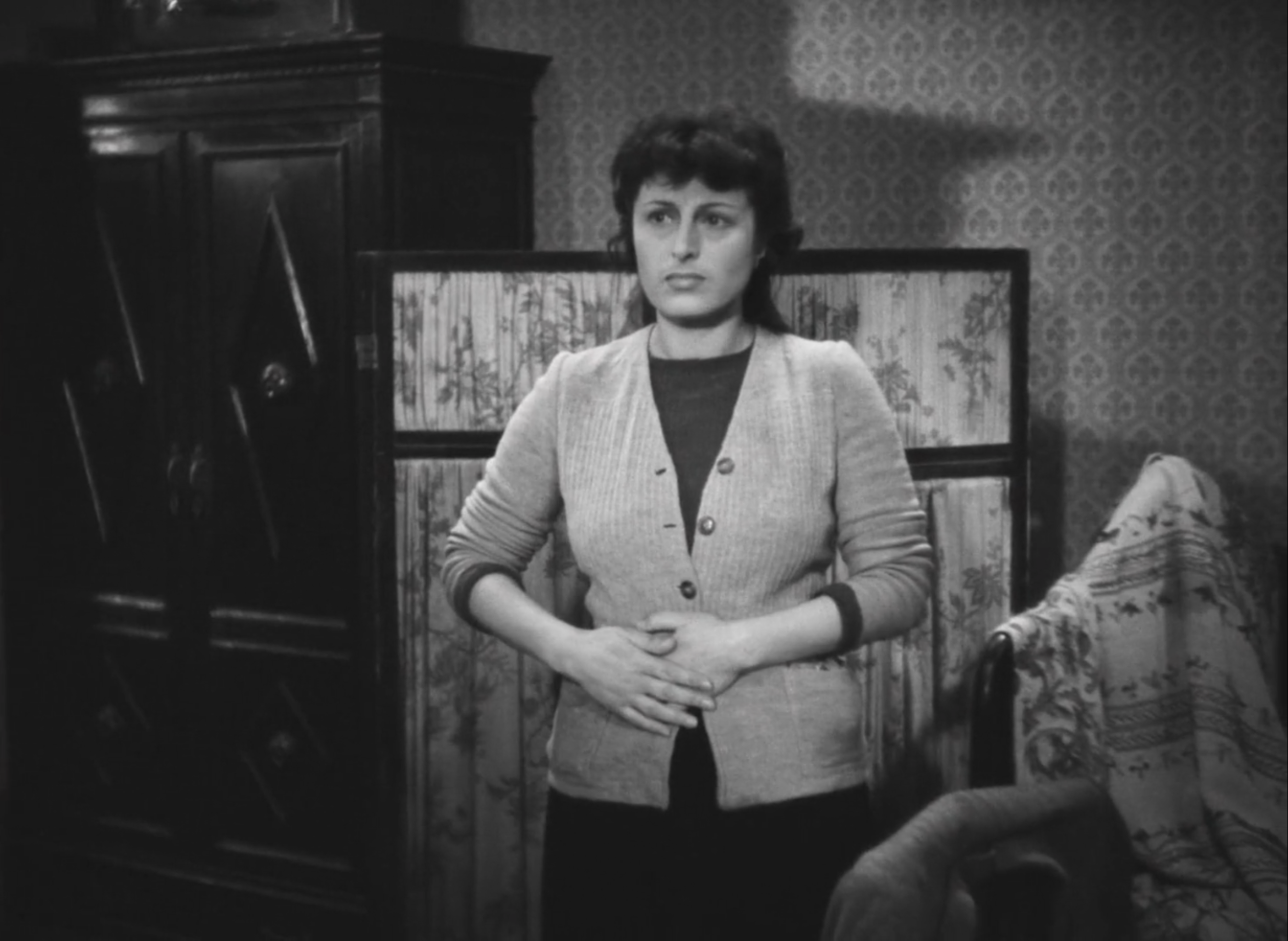1946: Anna Magnani in "Rome, Open City"
 Monday, June 14, 2021 at 8:56AM
Monday, June 14, 2021 at 8:56AM Each month before the Supporting Actress Smackdown, Nick Taylor suggests alternatives to the actual Oscar nomination ballot.

by Nick Taylor
I gather that folks will have different ideas about whether Anna Magnani’s work in Rome, Open City belongs in the leading or supporting category. Magnani holds down the first half of her film similar to the way Janet Leigh leads us into Psycho, appearing as an indomitable central player until a cruel exit halfway through her film. Unlike Leigh, Magnani isn’t the only character driving her film, sharing a comparable amount of narrative focus as Aldo Fabrizi’s priest and Marcello Pagliero’s Resistance fighter, to say nothing of the other characters threaded through the first half who only grow more important as the film continues. Still, her presence is so strong that, like Leigh, you can’t forget about her even after she’s gone. It’s a bit gratifying to learn this question has been hanging around the performance since the film was originally released. Magnani won the second ever National Board of Review award for Best Actress as well as the inaugural Nastros d’Argento Award for Best Supporting Actress back home in Italy. Rome, Open City’s lone Screenplay nomination is certainly significant enough to indicate that American artists noticed the film, as well as the fortuitous relationships Magnani, Rossellini, and Fellini would go on to have with Hollywood, but I’d be fascinated to find any writing about whether she was thought to have a chance at a nomination that year.
So yes, there will be readers who will justifiably argue she shouldn’t be considered as an alternative to the supporting actress lineup that will soon be discussed. I’d be happy to hear those arguments, and would be even happier to start from a place of recognizing her brilliance within this revolutionary film. Magnani’s Pina, the heavily pregnant fiancé of a high-ranking Resistance fighter in occupied Italy, is embodied with such fierce, unvarnished power that she remains the film’s most memorable face among its many tragic figures...


